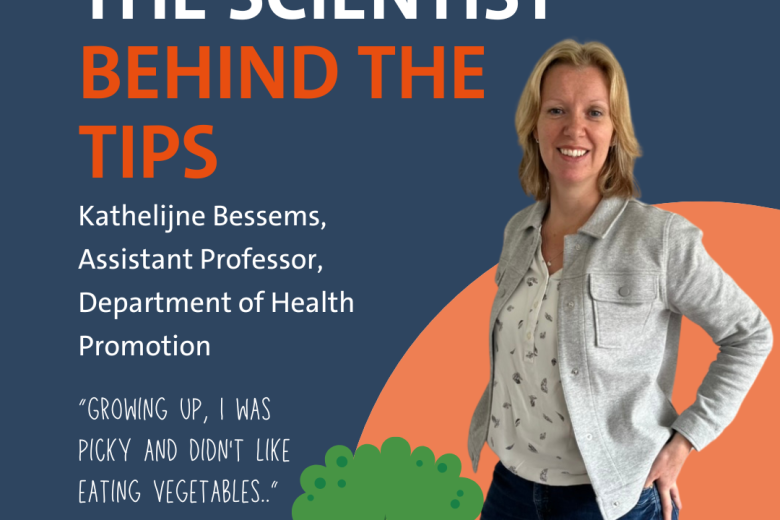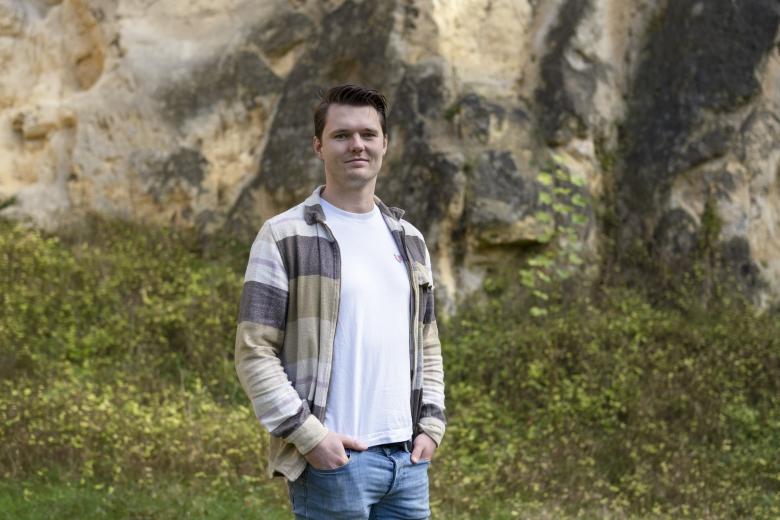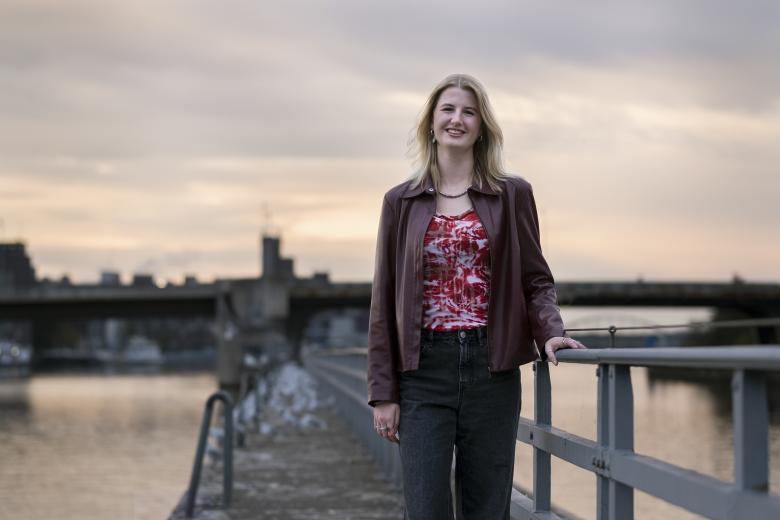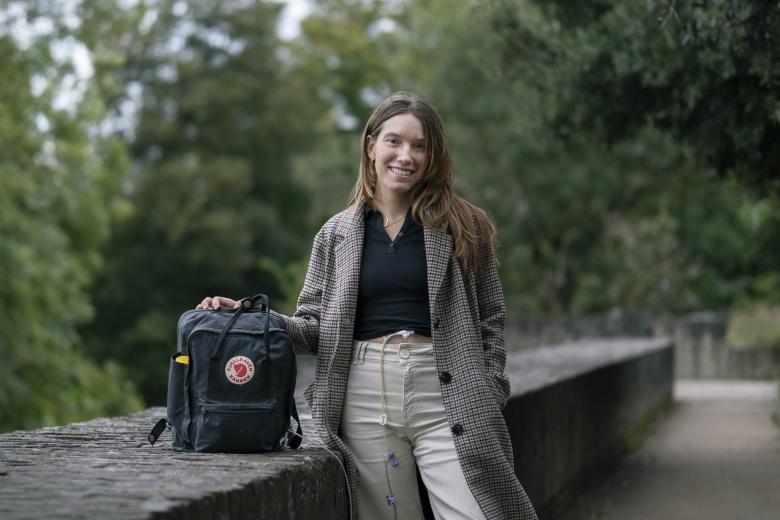Julia: “If you have dyslexia, you’re no less smart. Your brain just works differently.”
Medical student Julia Schepers has known she has dyslexia since high school. When she started her studies at Maastricht University three years ago, she went straight to Disability Support to ask for guidance. Thanks to measures like larger fonts and additional exam time, the difficulty she experiences with reading can be mitigated. “Dyslexia is still a regular nuisance. But little things like that help a lot. And fortunately, I now see the good sides too. With dyslexia, your brain works differently, which has its advantages.”
Coping with dyslexia
In primary school, nobody suspected that Julia had dyslexia. She got good grades and was able to subconsciously disguise her difficulty with reading and writing. But her language teachers in high school advised her to take a test. Their suspicions were confirmed: Julia was diagnosed with dyslexia. The tools she subsequently received made learning easier for her.
“I knew how much of a difference that had made, so when I was admitted to UM I went straight to Disability Support. Together we looked at the kinds of provisions that were available.” What does this support entail? “Because I read more slowly than others, I was able to request additional exam time. I take exams in smaller rooms and have adapted, larger font so I’m less likely to mix up letters.”
The text continues below the photo.

Speech software and visuals
Despite these measures, her dyslexia is still a regular nuisance. “In medicine, we have to read a lot. It takes me more time than others to process written information and understand what I’ve read. And in tutorials, I notice that others are often faster than me to respond. Sometimes find that annoying, because it seems like I don’t know the answer. That’s not the case; it just takes me a little longer.”
Fortunately, Julia is doing well in her studies. “I've found ways to make studying easier. I use speech software to read texts aloud to me, because I absorb information better when I hear it than when I read it. I’m also very visual. So I often sketch things or make diagrams of the teaching material. And I like to watch YouTube videos for explanations. That helps me learn.”
Tip: use your powers
Any advice for other students with a disability? “Use your powers!” she exclaims. “Dyslexia sometimes hinders me, but it also has its good sides. If you’re dyslexic, your brain works differently than other people’s. So I often think about the teaching material in a different way and have out-of-the-box ideas. Many people with dyslexia also have good spatial awareness. All that comes in handy in my studies, though it took me a while to see the benefits.”
Julia encourages students to seek help from Disability Support and to talk to others if they run into problems. “I often make light of it,” she says. “I’ll tell my tutorial group, ‘Sorry, I’m as dyslexic as a door.’ That makes them aware of it but it also becomes less of a thing.”
“Dyslexia sometimes hinders me, but it also has its good sides. If you’re dyslexic, your brain works differently than other people’s.”
Julia SchepersA brain that works differently
She also wants to emphasise that dyslexia is entirely unrelated to intelligence. “Just because you have dyslexia doesn’t make you any less smart. Some things take more time, but that’s not because of your intelligence. Your brain is just wired a little differently.”
Text: Romy Veul
Photography: Joris Hilterman
Read more stories about studying with a disability
Also read
-
Europe Day
To celebrate Europe Day on 9 May, FASoS student Lisa travelled to Brussels to meet with five of our inspiring alumni who are currently shaping European policy and advocacy. In this video, they share why Europe Day matters, how it’s celebrated in Brussels, and what the idea of Europe means to them.
-
The Green Office Catalyses Circularity Projects’ Autonomy
This semester, the Green Office cultivated the untapped potential of the Community Garden and the Clothing Swap Room. We hope that these Circularity Projects will operate under autonomous, functional organisations by this time next year, with continued support from the Green Office and the SUM2030 team... -
Evidence-based health tips for students: the science of eating healthy
In the upcoming months, we’ll share tips on Instagram for our students on how to live a healthier life. Not just a random collection, but tips based on actual research happening at our faculty. The brains behind this idea are L ieve Vonken and Gido Metz, PhD candidates at CAPHRI, the Care and Public...


